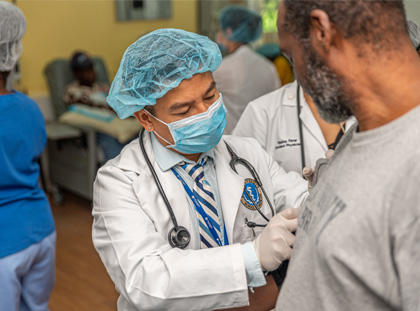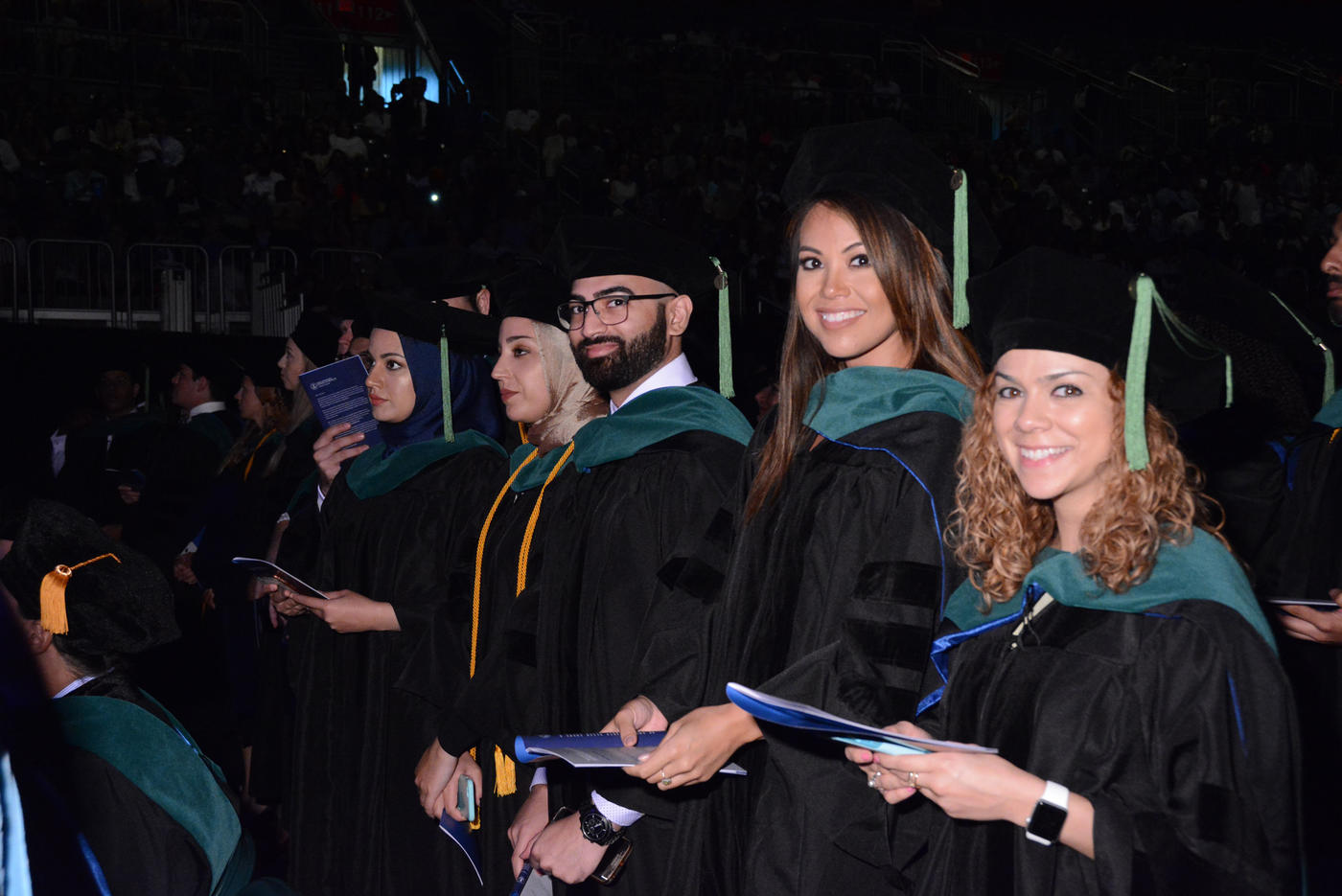Graduating from an accredited medical school—such as the Ross University School of Medicine (RUSM)*—earns you a Doctor of Medicine (MD) degree, but it is not the end of a physician’s education. MD’s must complete a minimum of three years at a post-graduate medical residency (and pass the United States Medical Licensing Examination®) before they can begin practicing medicine. Most medical school graduates move on to residencies, but the medical residency application process can be a bit trying. Below are some tips on medical residency selection criteria, and guidelines to help you create a winning application. So what do you need for a residency application? Let’s find out.
Medical Residency Selection Criteria
Medical residency selection criteria include:
- Curriculum vitae (CV)
- Medical school performance evaluation (MSPE)
- Letters of recommendation (LORs)
- Personal statement
By the time you are wondering how to apply for medical residency, you have only limited control over your CV and MSPE. But it is entirely up to you to shape your personal statement, and you can play an important role in getting strong letters of recommendation. There are so many bright applicants to residency programs that good grades and extracurricular activities are not enough. Follow these tips to meet deadlines and make your strongest case for an interview.
Letters of recommendation
LORs require careful planning. First, be sure you understand each residency’s requirements, because these can differ quite a bit. One program might require a letter from a particular department, while another might specify that you submit four letters, one from a non-physician. You won’t know unless you check and make sure! Also, get your letters from attending physicians instead of residents, partly because these will be rated stronger but also because many programs require it.
The secret to success in getting strong LORs is to plan ahead and follow a process. Remember, your letter writer probably has a bundle of letters to write by medical residency application season. If you wait too long, you may not meet the deadlines. At best, you may get a hurried effort. To avoid this complication, follow these recommendations:
- You should begin at least one month before the letters are due. Earlier is better. The more time you can give your letter writers, the better.
- Choose your letter writers carefully. This person should have worked with you directly, so they know your potential.
- Make the request formally, by writing. A verbal request can easily be forgotten, and it lacks detail. A written request shows you are serious, provides valuable information, and serves as its own reminder.
- Include your CV, a photograph, and a personal statement. It will help the doctor or faculty member write their letter if they have your information close at hand.
- Request a meeting with your writer, even if it lasts only 10 minutes, to go over any questions he/she may have about the letter. This meeting also serves as another reminder to your writer.
Personal statement
On your application, you have the most control over your personal statement. Unfortunately, many students spend relatively little time on their personal statement, but keeping some simple tips in mind can help make your medical residency application stand out from the crowd.
Medical Residency Application Process
Cheaters never win in the end
No insult intended, but it can be easier to cross the line into plagiarism than you might realize. If you are reading other personal statements, or trying to find inspiration in famous speeches by doctors, make sure that your words are your own. You should assume that the program coordinators will run internet searches for parts of your statement, and if they find sections that match word for word, you won’t be accepted. If this is a concern, perform an internet search on your draft beforehand.
Also in the interest of truth, do not exaggerate or try to fake interests. Program coordinators read dozens upon dozens of applications, so weak or inauthentic “passions” tend to stand out. Also, you are hoping to get an interview, so what will you do if you are questioned about a passion that you don’t really have? Applicants often get themselves into trouble when trying to cover up for a deficiency, but it is better to acknowledge deficiencies honestly.
Transform setbacks into lessons
We all sometimes experience setbacks. If you retook a class or faced other challenges, mention them briefly in your statement. The program will notice either way, so you look better addressing the issue directly. Don’t make excuses. Instead, describe the setback as a way to explain what you learned and how it made you tougher or more committed.
Make your personal statement personal
Residency applicants have a tendency to become impersonal in their personal statement. Focus on your personal passion for medicine. You are putting in many years of hard work to become a physician, when other fields may offer more money for less work. Why have you chosen the difficult path to become a doctor? Many people avoid the sick, and some are upset by the sight of blood. But you want to help and serve people, and help create healthier communities. Make a case for why your values and passion make you a strong residency candidate. Be sure to tie your statement to the specialty you have chosen, so the program can see that your passion ties to them specifically.
Proofread (and proofread again)
No one plans to let a typo or casual mistake make it into their personal statement, but it happens all the time. We all fail to see errors after having read the same paragraphs too many times. Ask friends or family members for help. Get input from people who know how to write and edit well. Most importantly, seek input from faculty members who know the specialty you want to pursue. Faculty readers will indicate gaps or problem areas others will miss.
Now that you know some tips to create a medical residency application, you have a good idea of what it will take to continue your education after graduation from a school of medicine. If you are a prospective medical student, investigate Ross Med’s MD program, and if you’ve already decided on a career as a physician, apply for admission to RUSM today!
Related Resources:
*Ross University School of Medicine is accredited by the Caribbean Accreditation Authority for Education in Medicine and other Health Professions (CAAM-HP, www.caam-hp.org).
CAAM-HP is the legally constituted body established in 2003 under the aegis of the Caribbean Community (CARICOM), empowered to determine and prescribe standards and to accredit programs of medical, dental, veterinary and other health professions education on behalf of the contracting parties in CARICOM.
Accreditation by CAAM-HP is a rigorous, peer review process which examines all aspects of a medical program. The CAAM-HP board, an independent and autonomous body of professionals, only certifies medical schools which are operating at the highest levels of industry standards.
Through this accreditation, the CAAM-HP provides assurance to medical students, graduates, the medical profession, healthcare institutions and the public that programs leading to qualifications in medicine meet appropriate national and international standards for educational quality, and that the graduates have a sufficiently complete and valid educational experience.



